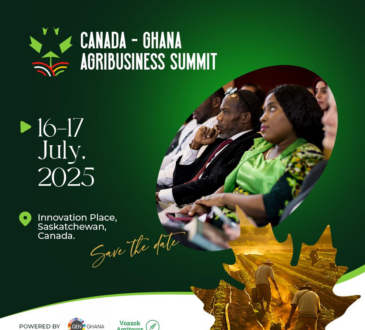The Interplay of Domestic and International Law in Ghanaian Foreign Investment Treaties: Balancing Investor Protection and Sustainable Development

I. Introduction
This research paper is authored by Dr. Shirley Ayangbah, an accomplished scholar with expertise spanning international law (International Economic Law), economics, and sustainable development. With a Ph.D. in International Law focused on integrating sustainable development into investment treaties, and advanced degrees in economics and international relations, Dr. Ayangbah brings an interdisciplinary approach to examining the interplay between legal frameworks, economic policies, and sustainable development imperatives.
A. Context and Importance of the Topic:
The relationship between domestic law and international law in the context of foreign investment treaties is a crucial issue for countries like Ghana, which seek to attract foreign investment while also promoting sustainable development and protecting the rights and welfare of their citizens. Ghana has entered into various bilateral investment treaties (BITs) and international investment agreements (IIAs) to provide legal protection for foreign investors. However, these treaties can sometimes conflict with Ghana’s domestic legal obligations and policy goals, creating tensions that need to be carefully navigated. This topic is important because it highlights the need for Ghana to strike a balance between its commitments under international investment law and its sovereign right to regulate in the public interest, in accordance with its Constitution and domestic legal framework.
B. Key Terms:
1. Domestic Law: The internal law of a country, including its Constitution, statutes, regulations, and case law. In Ghana, the Constitution is the supreme law of the land, and it sets out the fundamental rights of citizens, the structure of government, and the principles of state policy.
2. International Law: The set of rules, norms, and standards that govern the relations between sovereign states and other international actors. International law includes treaties, conventions, customary international law, and the general principles of law recognized by civilized nations.
3. Foreign Investment Treaties: Agreements between countries that establish the terms and conditions for private investment by nationals and companies of one country in the jurisdiction of another. These treaties typically provide substantive and procedural protections for foreign investors, such as guarantees of fair and equitable treatment, protection against expropriation without compensation, and access to international arbitration for dispute resolution.
4. Investor Protection: The legal safeguards and mechanisms that are designed to protect the rights and interests of foreign investors in host countries. These protections are often enshrined in investment treaties and can include provisions on non-discrimination, full protection and security, and compensation for expropriation.
5. Sustainable Development: A holistic approach to economic, social, and environmental progress that meets the needs of the present without compromising the ability of future generations to meet their own needs. In the context of foreign investment, sustainable development involves promoting investments that contribute to long-term economic growth, social inclusion, and environmental sustainability, while also respecting human rights and the rule of law.
II. Overview of Ghana’s Legal Framework
A. Domestic law: The Constitution of Ghana and its provisions on sovereignty, government obligations, and treaty-making
The Constitution of Ghana is the supreme law of the land, and it affirms the sovereignty of the Ghanaian people and the supremacy of the Constitution itself (Constitution of Ghana, 1992, Article 1(1)). The Constitution vests the executive power of Ghana in the President and mandates that this power be exercised in accordance with the Constitution (Article 58(1)). The President also has the power to execute treaties, agreements, and conventions in the name of Ghana, subject to ratification by an Act of Parliament (Article 75).
The Constitution imposes various obligations on the government of Ghana, including the duty to secure and protect the fundamental human rights and freedoms of Ghanaians (Article 12(1)), to take all necessary action to ensure that the national economy is managed in such a manner as to maximize the rate of economic development and to secure the maximum welfare, freedom and happiness of every person (Article 36(1)), and to safeguard the environment (Article 36(9)).
B. International law: Ghana’s obligations under international human rights treaties, environmental agreements, and the UN Charter
Ghana is a party to several international human rights treaties, including the International Covenant on Civil and Political Rights (ICCPR), the International Covenant on Economic, Social and Cultural Rights (ICESCR), and the African Charter on Human and Peoples’ Rights (ACHPR). These treaties impose obligations on Ghana to respect, protect, and fulfill the human rights of its citizens, including the right to life, the right to health, and the right to an adequate standard of living (ICCPR, 1966; ICESCR, 1966; ACHPR, 1981).
Ghana is also a party to various international environmental agreements, such as the Convention on Biological Diversity (CBD), the United Nations Framework Convention on Climate Change (UNFCCC), and the African Convention on the Conservation of Nature and Natural Resources (ACCNNR). These agreements require Ghana to take measures to protect the environment, conserve biodiversity, and promote sustainable development (CBD, 1992; UNFCCC, 1992; ACCNNR, 2003).
As a member of the United Nations, Ghana is bound by the provisions of the UN Charter, which imposes obligations on member states to promote and encourage respect for human rights and fundamental freedoms (UN Charter, 1945, Article 1(3)). The Charter also emphasizes the importance of international cooperation in solving global problems of an economic, social, cultural, or humanitarian character (Article 1(3)). Notably, Article 103 of the UN Charter states that in the event of a conflict between the obligations of member states under the Charter and their obligations under any other international agreement, their obligations under the Charter shall prevail (Article 103).
III. Foreign Investment Treaties in Ghana
- History and development of Ghana’s foreign investment treaties
Ghana has been actively engaged in negotiating and concluding foreign investment treaties to promote and protect foreign investments in the country. The first bilateral investment treaty (BIT) Ghana signed was with the United Kingdom in 1989 (UNCTAD, 2020). Since then, Ghana has entered into numerous BITs with countries such as China, Denmark, Germany, Malaysia, and the Netherlands (UNCTAD, 2020). Ghana is also a party to multilateral investment treaties, including the ECOWAS Energy Protocol and the African Continental Free Trade Area (AfCFTA) Agreement (ECOWAS, 2003; AfCFTA, 2018).
- Key provisions in these treaties Ghana’s investment treaties typically include substantive protection standards for foreign investors, such as:
- Fair and Equitable Treatment (FET): This standard requires Ghana to treat foreign investors fairly and equitably, providing a stable and predictable legal framework for investments (Dolzer & Schreuer, 2012, p. 130).
- Protection against expropriation: Investment treaties prohibit Ghana from expropriating foreign investments without prompt, adequate, and effective compensation (Dolzer & Schreuer, 2012, p. 98).
- National Treatment and Most-Favored-Nation Treatment: These standards ensure that Ghana treats foreign investors no less favorably than its own investors (national treatment) and investors from other countries (most-favored-nation treatment) (Dolzer & Schreuer, 2012, p. 198).
- Dispute resolution: Investment treaties often provide for international arbitration as a means of resolving disputes between foreign investors and Ghana, typically through the International Centre for Settlement of Investment Disputes (ICSID) or ad hoc arbitration under the United Nations Commission on International Trade Law (UNCITRAL) rules (Dolzer & Schreuer, 2012, p. 238).
- Potential conflicts between treaty obligations and Ghana’s domestic and international legal commitments
The broad and vague language of investment treaty provisions, combined with their interpretation by international arbitral tribunals, can potentially conflict with Ghana’s obligations under its Constitution and international human rights and environmental agreements. For example:
- The FET standard has been interpreted to include a right to a “stable and predictable legal framework,” which may constrain Ghana’s ability to regulate in the public interest, such as adopting new environmental or public health measures (Dolzer & Schreuer, 2012, p. 145).
- The protection against expropriation may conflict with Ghana’s constitutional obligations to manage its natural resources in a manner that secures the maximum welfare and happiness of its people (Constitution of Ghana, 1992, Article 36(1)), as measures taken to protect the environment or promote sustainable development could be deemed indirect expropriations requiring compensation (Dolzer & Schreuer, 2012, p. 101).
- The requirement to compensate foreign investors for regulatory measures that adversely affect their investments may strain Ghana’s financial resources and hinder its ability to fulfill its obligations under the ICESCR to progressively realize economic, social, and cultural rights (ICESCR, 1966, Article 2(1)).
To minimize these potential conflicts, Ghana should carefully draft its investment treaties to preserve its right to regulate in the public interest and ensure that its treaty obligations align with its domestic and international legal commitments to promote sustainable development and protect human rights.
IV. Balancing Investor Protection and Sustainable Development
- The “national law-international investment law imperatives theory”
The “national law-international investment law imperatives theory” suggests that both domestic and international law play crucial roles in shaping the negotiation and interpretation of Ghana’s investment treaties. This theory posits that Ghana’s obligations under its domestic law, particularly the Constitution, and its commitments under international human rights and environmental agreements should inform the drafting and application of investment treaties (Document, Section 3.4.1).
- Government’s right to regulate in the public interest.
Ghana’s right to regulate in the public interest is grounded in its sovereignty and the constitutional mandate to manage the national economy in a manner that secures the maximum welfare, freedom, and happiness of every person (Constitution of Ghana, 1992, Article 36(1)). The government must retain the policy space to adopt measures that promote sustainable development, protect human rights, and safeguard the environment, without the fear of incurring liability under investment treaties (Document, Section 3.4.2).
- Avoiding overprotection of foreign investors at the expense of human rights and the environment.
Overprotecting foreign investors through broad and vague treaty standards, such as the FET clause, can constrain Ghana’s ability to regulate in the public interest and fulfill its obligations under international human rights and environmental law (Document, Section 3.2.1.1). Ghana should ensure that its investment treaties do not prioritize investor rights over the protection of human rights and the environment, and that they preserve the government’s right to regulate for legitimate public purposes (Document, Section 3.4.2).
- Importance of aligning investment treaties with sustainable development goals
Aligning investment treaties with sustainable development goals is crucial for ensuring that foreign investment contributes to Ghana’s long-term economic, social, and environmental well-being. Ghana should negotiate investment treaties that promote responsible and sustainable investment practices, foster technology transfer, and support the development of local industries (Document, Section 3.4.2). Moreover, investment treaties should include provisions that recognize Ghana’s right to regulate in pursuance of sustainable development objectives, such as the protection of public health, the environment, and labor rights (Document, Section 3.4.2).
To achieve a balance between investor protection and sustainable development, Ghana should:
- Carefully draft investment treaty provisions to minimize potential conflicts with its domestic and international legal obligations (Document, Section 3.4.2).
- Include explicit exceptions and carve-outs in investment treaties to safeguard its right to regulate in the public interest (Document, Section 3.4.2).
- Ensure transparency and public participation in the negotiation and implementation of investment treaties (Document, Section 3.4.2).
- Continuously monitor and assess the impact of its investment treaties on sustainable development and make necessary adjustments to maintain a balance between investor rights and public interests (Document, Section 3.4.2).
By adopting a holistic approach that reconciles investor protection with sustainable development imperatives, Ghana can harness the benefits of foreign investment while upholding its constitutional obligations and international commitments to promote human rights and environmental sustainability.
V. Challenges and Opportunities
A. Political and economic pressures in negotiating investment treaties.
Ghana faces various political and economic pressures when negotiating investment treaties. The desire to attract foreign investment may lead to concessions that limit the government’s regulatory autonomy and ability to pursue sustainable development goals (Document, Section 3.4.2). Developed countries and multinational corporations often have greater bargaining power and may push for stronger investor protections at the expense of other public policy objectives (Guzman, 1998). Moreover, the competition among developing countries to attract foreign investment can create a “race to the bottom” in terms of environmental and social standards (Neumayer, 2001).
B. The role of civil society and public participation
Civil society organizations and public participation play a crucial role in shaping the discourse on investment treaties and ensuring that they align with sustainable development goals. NGOs, academics, and other stakeholders can raise awareness about the potential negative impacts of investment treaties on human rights, the environment, and public policy (Keene, 2017). They can also advocate for greater transparency and accountability in the negotiation and implementation of investment treaties (Keene, 2017). Public participation in the treaty-making process can help ensure that investment treaties reflect the interests and concerns of affected communities and contribute to sustainable development (VanDuzer et al., 2013).
C. Potential reforms to the international investment regime There is growing recognition of the need to reform the international investment regime to better balance investor rights with the host state’s right to regulate in the public interest. Potential reforms include:
- Clarifying and narrowing the scope of substantive treaty standards, such as FET and indirect expropriation, to preserve regulatory space (UNCTAD, 2017).
- Incorporating explicit exceptions and carve-outs for public policy measures related to health, safety, the environment, and human rights (UNCTAD, 2017).
- Establishing a multilateral investment court to enhance the consistency, legitimacy, and transparency of investor-state dispute settlement (European Commission, 2015).
- Including provisions on corporate social responsibility and sustainable development in investment treaties to promote responsible investment practices (VanDuzer et al., 2013).
D. Best practices for drafting future investment treaties.
To ensure that future investment treaties strike a balance between investor protection and sustainable development, Ghana should consider the following best practices:
- Conducting comprehensive impact assessments before negotiating investment treaties to identify potential risks and benefits (VanDuzer et al., 2013).
- Engaging in transparent and inclusive public consultations throughout the treaty-making process (VanDuzer et al., 2013).
- Carefully drafting substantive treaty provisions to minimize ambiguity and preserve policy space for regulation in the public interest (UNCTAD, 2017).
- Including explicit provisions on sustainable development, human rights, and environmental protection in investment treaties (UNCTAD, 2017).
- Establishing monitoring and review mechanisms to assess the impact of investment treaties on sustainable development and make necessary adjustments (VanDuzer et al., 2013).
By addressing these challenges and opportunities, Ghana can work towards developing an investment treaty regime that not only attracts foreign investment but also promotes sustainable development and protects the rights and interests of its citizens.
VI. Conclusion
The analysis and recommendations presented in this paper are informed by the author’s extensive research background. Dr. Ayangbah has published influential works in peer-reviewed journals like Cogent Social Sciences and the Journal of Politics and Law, analyzing topics such as foreign investment laws, arbitration, digital trade, and economic inclusion. Her research has garnered several citations according to Google Scholar. Additionally, Dr. Ayangbah has worked as a Senior Economic Research Analyst, Financial Economist, and Data Analyst, providing economic analysis, forecasting, and advisory services to private and public institutions.
This discussion has explored the interplay between domestic and international law in Ghanaian foreign investment treaties, focusing on the need to balance investor protection with sustainable development. The main points covered include:
- The importance of Ghana’s legal framework, including its Constitution and international obligations, in shaping the negotiation and interpretation of investment treaties.
- The potential conflicts between investment treaty obligations and Ghana’s domestic and international commitments to promote human rights, environmental protection, and sustainable development.
- The “national law-international investment law imperatives theory,” which argues for the harmonization of domestic and international law in the context of investment treaties.
- The need to preserve Ghana’s right to regulate in the public interest and avoid overprotecting foreign investors at the expense of other public policy goals.
- The challenges and opportunities in reforming the international investment regime and adopting best practices for drafting future investment treaties.
To ensure that foreign investment contributes to Ghana’s sustainable development while respecting the rights and interests of all stakeholders, it is crucial to adopt a balanced approach to investment treaty-making. This approach should uphold the rule of law and promote responsible and sustainable investment practices. Ghana must carefully navigate the political and economic pressures in negotiating investment treaties and strive to maintain its regulatory autonomy to pursue legitimate public policy objectives. Engaging civil society and fostering public participation in the treaty-making process can help ensure that investment treaties align with the needs and aspirations of the Ghanaian people.
To further advance the goal of balancing investor protection with sustainable development in Ghana’s investment treaties, the following areas merit additional research and policy development:
- Conducting empirical studies on the impact of existing investment treaties on Ghana’s sustainable development outcomes, including economic growth, social welfare, and environmental protection.
- Exploring innovative treaty provisions and policy tools that can promote sustainable investment practices, such as sustainability impact assessments, corporate social responsibility obligations, and performance requirements.
- Developing a comprehensive national strategy for sustainable investment that aligns with Ghana’s development priorities and guides the negotiation and implementation of future investment treaties.
- Strengthening institutional capacity and cross-sectoral coordination among government agencies involved in investment treaty-making and implementation to ensure policy coherence and effective monitoring of sustainable development impacts.
- Engaging in regional and multilateral efforts to reform the international investment regime and develop new models for investment governance that prioritize sustainable development and inclusive growth.
By pursuing these areas of research and policy development, Ghana can continue to refine its approach to investment treaty-making and work towards a more sustainable and equitable future for its people.
References:
- African Charter on Human and Peoples’ Rights. (1981). OAU Doc. CAB/LEG/67/3 rev. 5, 21 I.L.M. 58.
- African Continental Free Trade Area Agreement. (2018). Retrieved from https://au.int/sites/default/files/treaties/36437-treaty-consolidated_text_on_cfta_-_en.pdf
- African Convention on the Conservation of Nature and Natural Resources. (2003). Retrieved from https://au.int/sites/default/files/treaties/7782-treaty-0029_-_revised_african_convention_on_the_conservation_of_nature_and_natural_resources_e.pdf
- Charter of the United Nations. (1945). 1 UNTS XVI.
- Constitution of the Republic of Ghana. (1992). Retrieved from https://www.constituteproject.org/constitution/Ghana_1996.pdf
- Convention on Biological Diversity. (1992). United Nations Treaty Series, vol. 1760, p. 79.
- Document: The Interplay of Domestic and International Law in Ghanaian Foreign Investment Treaties: Balancing Investor Protection and Sustainable Development (Sections 3.2.1.1, 3.4.1, 3.4.2).
- Dolzer, R., & Schreuer, C. (2012). Principles of international investment law (2nd ed.). Oxford University Press.
- ECOWAS Energy Protocol. (2003). Retrieved from http://www.ecowrex.org/system/files/repository/2003_ecowas_energy_protocol.pdf
- European Commission. (2015). Investment in TTIP and beyond – the path for reform. Retrieved from https://trade.ec.europa.eu/doclib/docs/2015/may/tradoc_153408.PDF
- Guzman, A. T. (1998). Why LDCs sign treaties that hurt them: Explaining the popularity of bilateral investment treaties. Virginia Journal of International Law, 38(4), 639-688.
- International Covenant on Civil and Political Rights. (1966). United Nations Treaty Series, vol. 999, p. 171.
- International Covenant on Economic, Social and Cultural Rights. (1966). United Nations Treaty Series, vol. 993, p. 3.
- Keene, A. (2017). The incorporation and interpretation of WTO-style environmental exceptions in international investment agreements. Review of European, Comparative & International Environmental Law, 27(1), 9-20.
- Neumayer, E. (2001). Greening trade and investment: Environmental protection without protectionism. Earthscan.
- UNCTAD. (2017). UNCTAD’s reform package for the international investment regime. United Nations Conference on Trade and Development. Retrieved from https://investmentpolicy.unctad.org/uploaded-files/document/UNCTAD_Reform_Package_2017.pdf
- UNCTAD. (2020). International Investment Agreements Navigator: Ghana. Retrieved from https://investmentpolicy.unctad.org/international-investment-agreements/countries/79/ghana
- United Nations Framework Convention on Climate Change. (1992). United Nations Treaty Series, vol. 1771, p. 107.
- VanDuzer, J. A., Simons, P., & Mayeda, G. (2013). Integrating sustainable development into international investment agreements: A guide for developing country negotiators. Commonwealth Secretariat
About the Author:
Dr. Shirley Ayangbah is a renowned development and international trade economist whose research focuses on the nexus of sustainable development, women’s rights, international economic law, and trade policy. She holds a Ph.D. in International Law from Zhongnan University of Economics and Law, an M.A. in Economics from Claremont Graduate University, and an M.A. in International Relations from Central China Normal University. Dr. Ayangbah has received numerous honors, including the Computational Justice Research Assistant Award from Claremont Graduate University and the Chinese Government Award for Outstanding International Student.







